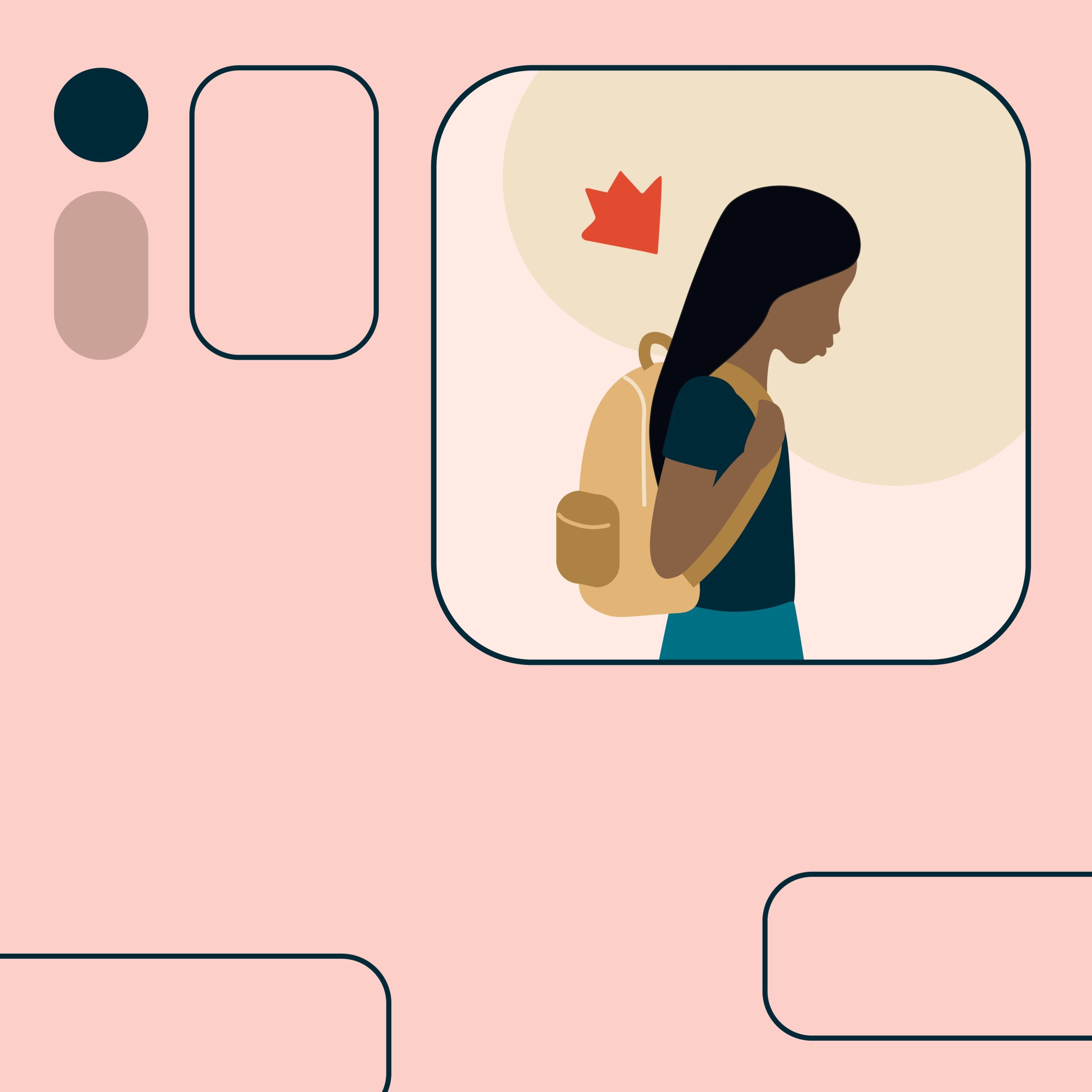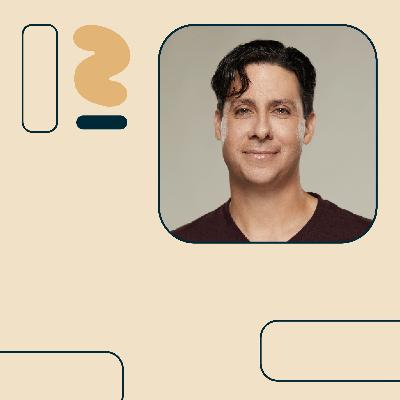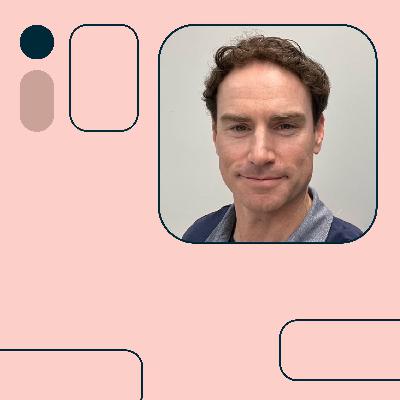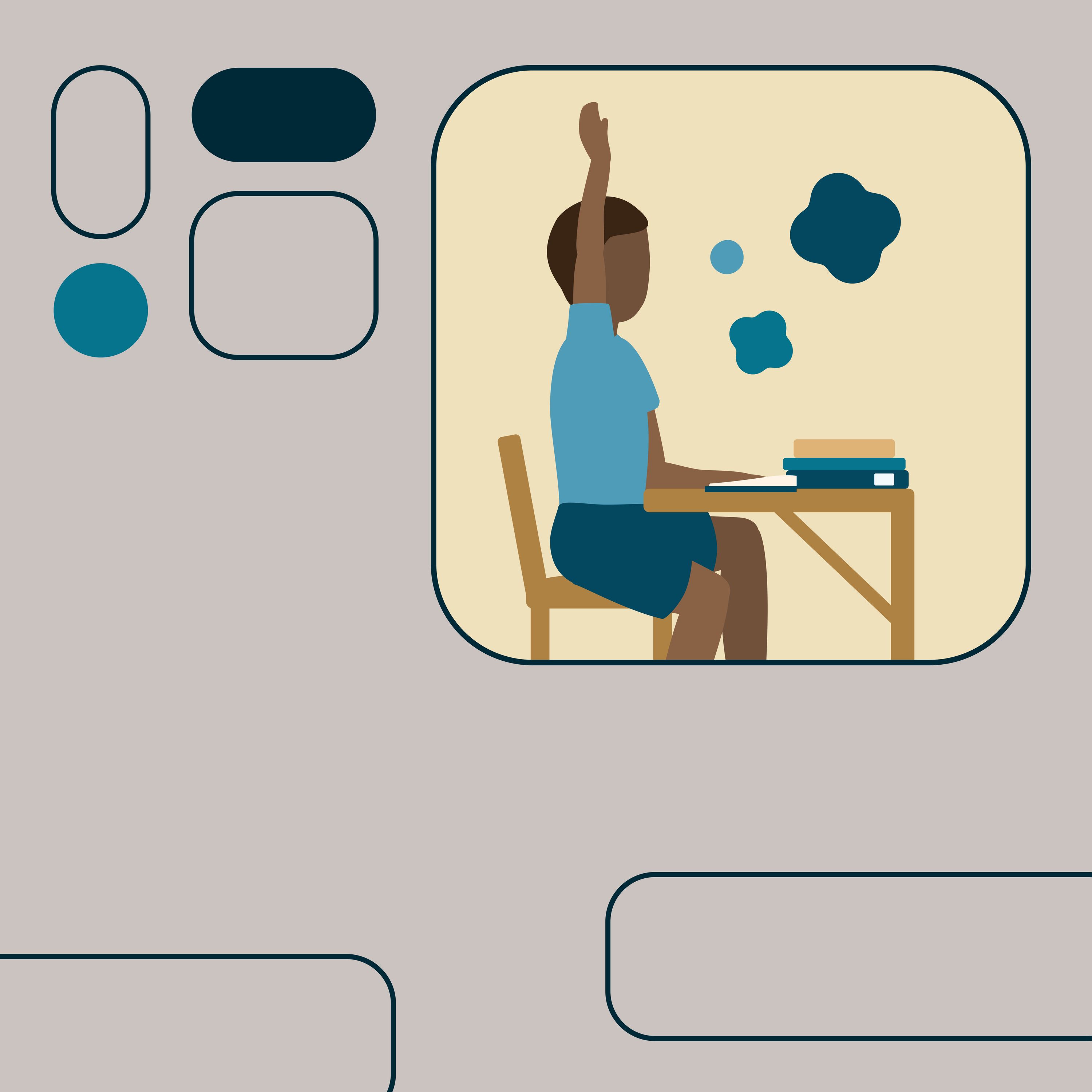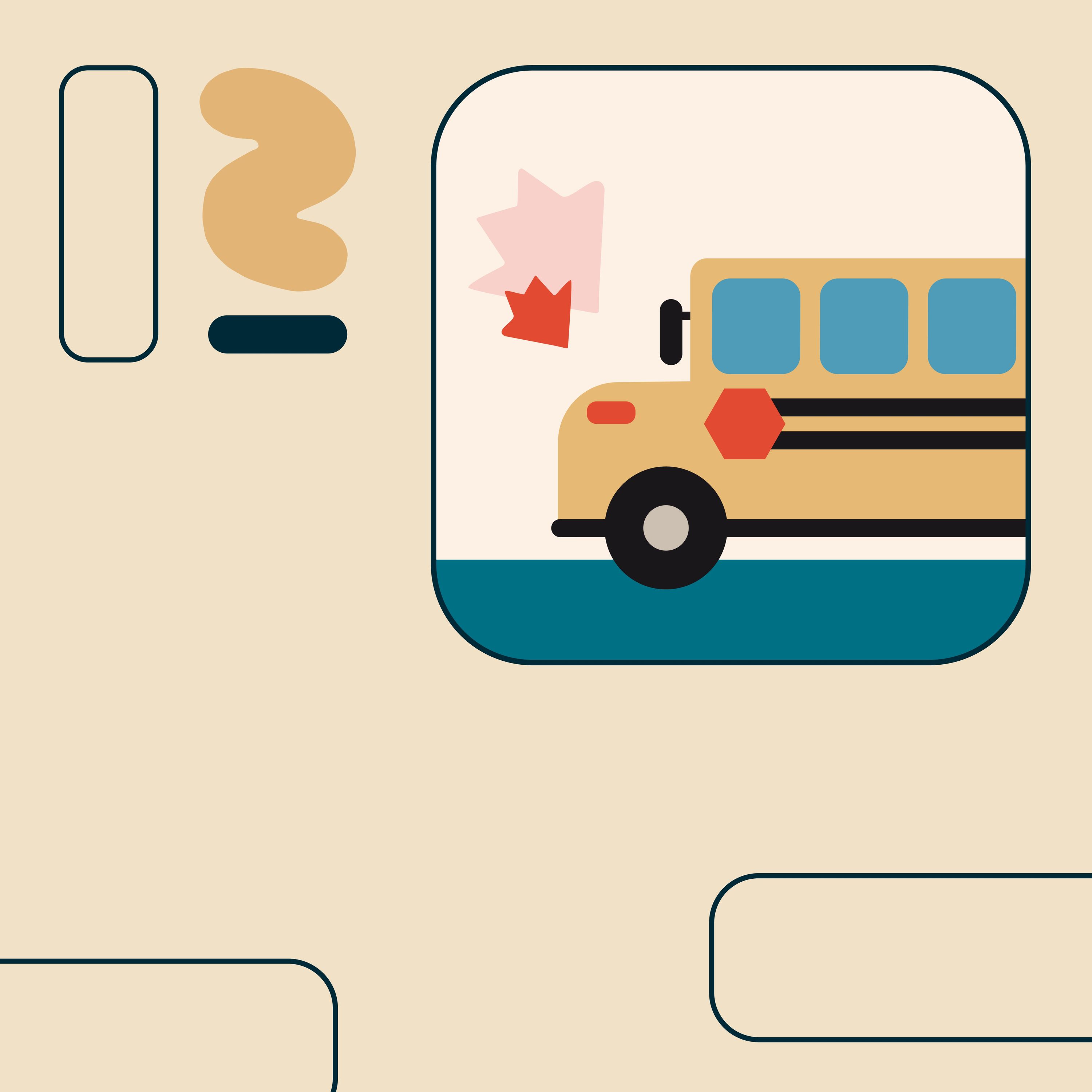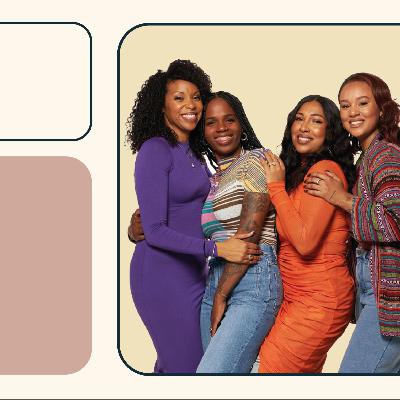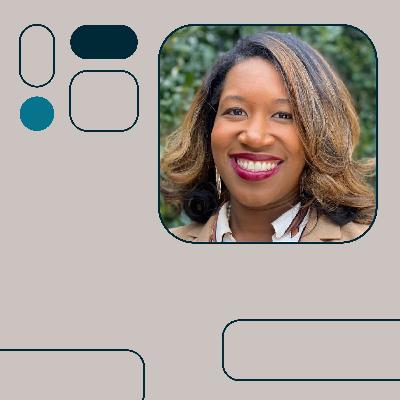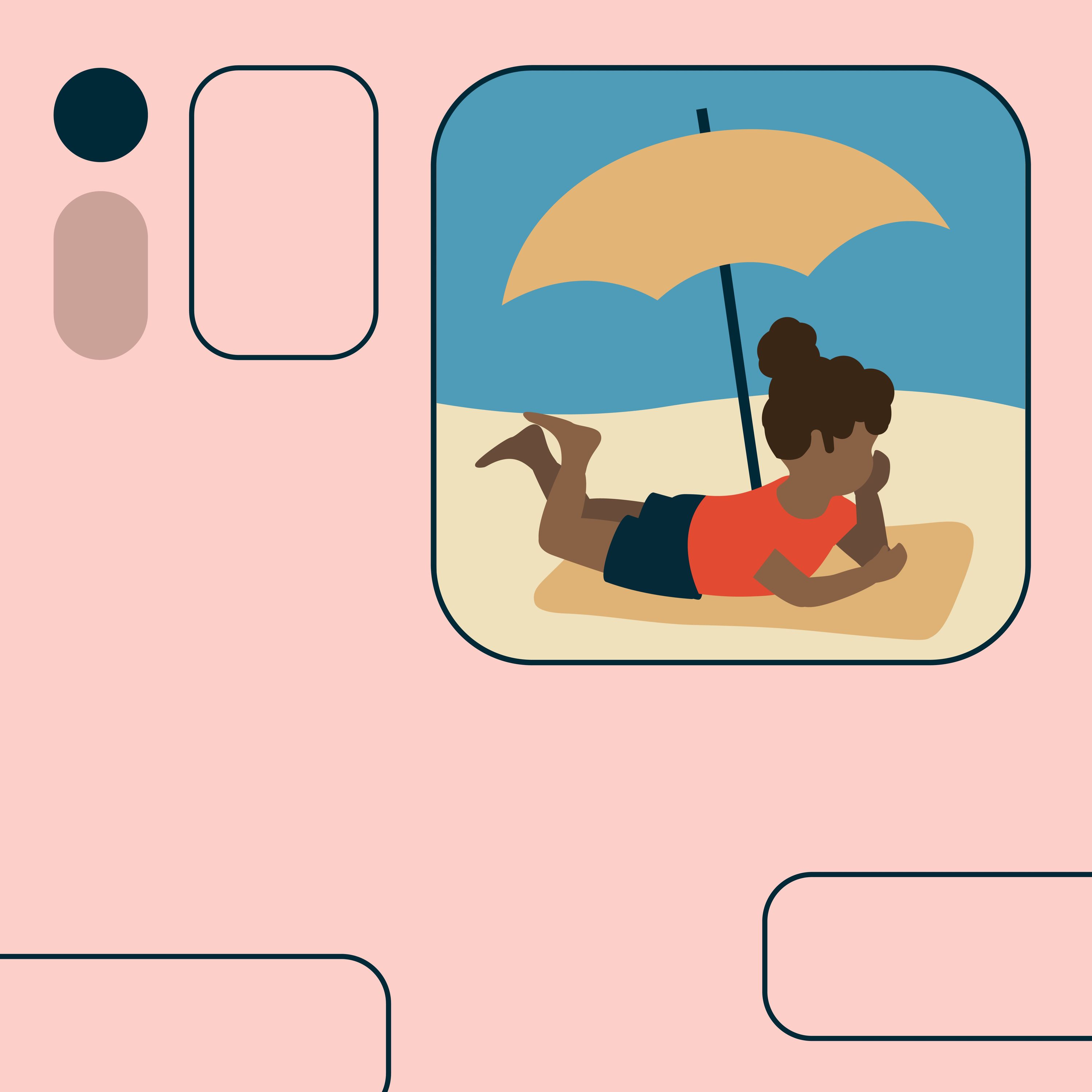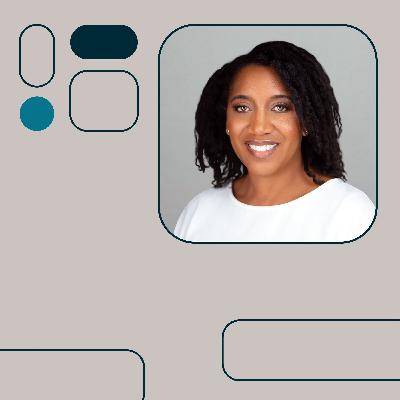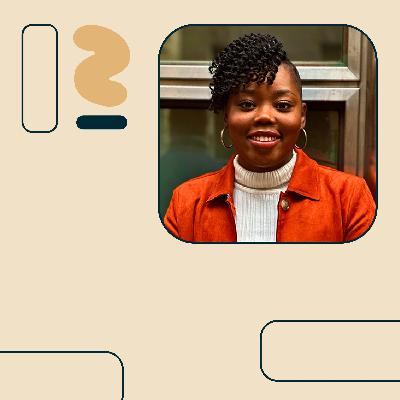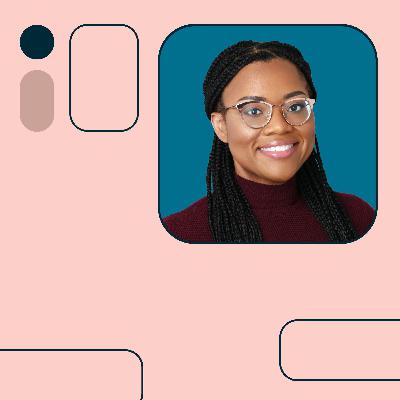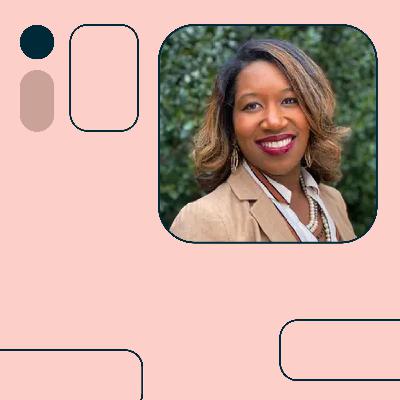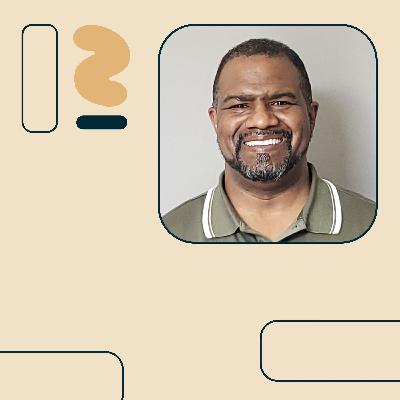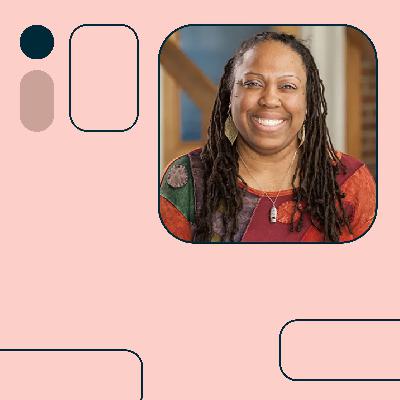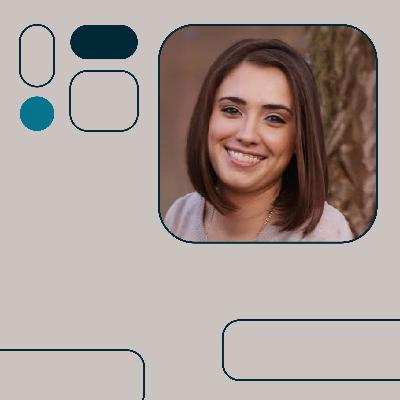Discover Opportunity Gap: How to Support Kids of Color Who Learn Differently
Opportunity Gap: How to Support Kids of Color Who Learn Differently

Opportunity Gap: How to Support Kids of Color Who Learn Differently
Author: Understood.org, Julian Saavedra
Subscribed: 42Played: 291Subscribe
Share
Description
Navigating the education system can be overwhelming for families whose children have ADHD, dyslexia, or other learning and thinking differences. Opportunity Gap is a podcast that sheds light on the real challenges families face when trying to get the right support for their kids.
On this show, we explore how identity, race, disability, and access to resources can make the education journey more challenging — and what parents can do about it. Join host Julian Saavedra, an assistant principal and father of two, as he shares real stories, expert insights, and practical strategies to help you advocate for your child.
On this show, we explore how identity, race, disability, and access to resources can make the education journey more challenging — and what parents can do about it. Join host Julian Saavedra, an assistant principal and father of two, as he shares real stories, expert insights, and practical strategies to help you advocate for your child.
87 Episodes
Reverse
What do you do when your child says, “I think my teacher hates me”? In this episode, Julian breaks down what that really means. Learn how to spot signs of microaggressions in the classroom. Get simple ways to support your child and speak up when something feels wrong. And find out how to address microaggressions in a calm, clear way.For more on this topic: Families of color and communicating with teachersPerspectives: How to make sure families of color are heard by the schoolThe hard truth about racism in special education: Part 1Timestamps: (00:00) Intro(00:40) What is a microaggression?(02:44) Julian’s personal experience(07:37) How to talk to your child about microaggressions For a transcript and more resources, visit The Opportunity Gap on Understood.org. You can also email us at opportunitygap@understood.org.
Understood.org is a nonprofit organization dedicated to empowering people with learning and thinking differences, like ADHD and dyslexia. If you want to help us continue this work, donate at understood.org/give Hosted by Simplecast, an AdsWizz company. See pcm.adswizz.com for information about our collection and use of personal data for advertising.
Ever leave a parent-teacher conference feeling more confused than informed? Dr. Andy Kahn joins us to help you prepare and make the most of these important conversations.For many parents, these meetings can feel like a quick whirlwind, leaving unanswered questions. In this episode, you’ll discover:How to set clear, focused goals before your meetingStrategies for making the most of limited time with your child’s teacherHow Understood’s new resource, “Through My Eyes,” offers valuable insight into your child’s learning experienceExperience how it feels to learn differently. Step into real-life simulations of kids with ADHD, dyslexia, and dyscalculia with “Through My Eyes” by Understood.org. For more on this topicParent-teacher conferences: How to get ready for your next meetingWhat to do after a parent-teacher conferenceTimestamps(00:00) Intro(01:23) Goals parents should have for the parent-teacher conference(05:47) How to raise concerns with your child’s teacher(09:00) Ways parents can make the most of their conference(11:56) What is “Through My Eyes?”For a transcript and more resources, visit the Opportunity Gap page on Understood.org. We love hearing from our listeners! Email us at opportunitygap@understood.org.
Understood.org is a nonprofit organization dedicated to empowering people with learning and thinking differences, like ADHD and dyslexia. If you want to help us continue this work, donate at understood.org/give Hosted by Simplecast, an AdsWizz company. See pcm.adswizz.com for information about our collection and use of personal data for advertising.
Some kids work hard in math but still struggle to keep up. Even with extra practice, the numbers just don’t click. This might be a sign of dyscalculia, a learning disability that makes it difficult to understand and use numbers.In this episode, we’re joined by math teacher Brendan Hodnett. Hear as Brendan explains what dyscalculia is and how it can affect a student’s confidence. Then find out what families can do to help support their child.For more on this topicWhat is dyscalculia?Dyscalculia or math anxiety? Compare the signs in kidsTimestamps(0:00) Intro(01:12) What is dyscalculia? (06:39) Signs a child may have dyscalculia (11:46) Consequences of undiagnosed dyscalculia (17:15) What families can doFor a transcript and more resources, visit the Opportunity Gap page on Understood.org. We love hearing from our listeners! Email us at opportunitygap@understood.org.
Understood.org is a nonprofit organization dedicated to empowering people with learning and thinking differences, like ADHD and dyslexia. If you want to help us continue this work, donate at understood.org/give Hosted by Simplecast, an AdsWizz company. See pcm.adswizz.com for information about our collection and use of personal data for advertising.
Not all students get the same chance to succeed. Things like where they live, how much money their family has, or the language they speak at home can create unfair differences. These differences can create what is called an “opportunity gap.”In this episode, learn what the opportunity gap really means and how it affects students. Discover why this issue matters. And hear why closing the gap is about more than just test scores.For more on this topicWhat is the “opportunity gap”? A discussion about race, income, and disabilityADHD and race: What Black families need to knowTimestamps(00:00) Intro(00:55) What is an opportunity gap?(06:45) How opportunity gaps show up in schools(12:07) Why this show existsFor a transcript and more resources, visit the Opportunity Gap page on Understood.org. We love hearing from our listeners! Email us at opportunitygap@understood.org.
Understood.org is a nonprofit organization dedicated to empowering people with learning and thinking differences, like ADHD and dyslexia. If you want to help us continue this work, donate at understood.org/give Hosted by Simplecast, an AdsWizz company. See pcm.adswizz.com for information about our collection and use of personal data for advertising.
Back-to-school season can bring a mix of excitement and stress for parents and kids. From adjusting sleep schedules to managing new routines, there’s a lot to prepare.In this episode, Julian Saavedra answers common questions parents have about getting their kids ready for the school year. Get his tips for how to ease first-day nerves and create calm morning routines.For more on this topic:Back-to-school support guideBack-to-school: A 4-week plan for a great startBack-to-school checklist: Everything but the booksTimestamps:(01:56) How to create smoother mornings for your child(05:56) How to help your child manage first day of school anxiety(15:47) How to help your child master homework For a transcript and more resources, visit the Opportunity Gap page on Understood.org. We love hearing from our listeners! Email us at opportunitygap@understood.org.
Understood.org is a nonprofit organization dedicated to empowering people with learning and thinking differences, like ADHD and dyslexia. If you want to help us continue this work, donate at understood.org/give Hosted by Simplecast, an AdsWizz company. See pcm.adswizz.com for information about our collection and use of personal data for advertising.
Julian Saavedra joins The Mama’s Den podcast for an honest conversation about learning and thinking differences in kids of color. Listen as he shares how families can support their kids’ needs at home and in school. And get tips for how to work alongside your child’s teacher.The Mama’s Den is hosted by Codie Elaine Oliver, Melanie Fiona, Ashley Chea, and Felicia LaTour. Related resourcesWatch The Mama’s Den on YouTube8 steps to advocating for your child at schoolNeed help advocating for your kid at school? We talk to a proTimestamps(14:23) Why talking about learning disabilities in diverse communities is important(19:06) How educators can best support struggling students(22:33) When should parents seek support for their child?We love hearing from our listeners! Email us at opportunitygap@understood.org.
Understood.org is a nonprofit organization dedicated to empowering people with learning and thinking differences, like ADHD and dyslexia. If you want to help us continue this work, donate at understood.org/give Hosted by Simplecast, an AdsWizz company. See pcm.adswizz.com for information about our collection and use of personal data for advertising.
ADHD is getting a lot of attention on social media. Some posts share helpful tips from experts. But many others share false information. In this episode, we look at how social media spreads harmful myths about ADHD. Listen as Dr. Kristin Carothers, a psychologist, talks about why these myths are dangerous and how they add to stigma and shame. Then get her advice on what parents can do to help set the record straight.Related resources:8 common myths about ADHDHow social media changed ADHD foreverThe Opportunity Gap show pageTimestamps:(04:17) Why we should be careful about spreading myths (18:56) Tips for debunking ADHD mythsWe love hearing from our listeners! Email us at opportunitygap@understood.org.
Understood.org is a nonprofit organization dedicated to empowering people with learning and thinking differences, like ADHD and dyslexia. If you want to help us continue this work, donate at understood.org/give Hosted by Simplecast, an AdsWizz company. See pcm.adswizz.com for information about our collection and use of personal data for advertising.
In this episode, Julian Saavedra breaks down what makes a good summer for kids with learning differences. Find out why rest is important for kids. And learn simple activities to help kids stay active and involved during the break.Related resources6 summer learning apps and games for tweens and teensSummer guide for familiesSummer survival guide: Hacks to help your family thriveFor a transcript and more resources, visit the Opportunity Gap page on Understood.org. We love hearing from our listeners! Email us at opportunitygap@understood.org.
Understood.org is a nonprofit organization dedicated to empowering people with learning and thinking differences, like ADHD and dyslexia. If you want to help us continue this work, donate at understood.org/give Hosted by Simplecast, an AdsWizz company. See pcm.adswizz.com for information about our collection and use of personal data for advertising.
Special education has many terms that can be hard to understand. You may hear them often at school meetings or even see them in learning plans. And learning what they mean can help you best support your child.In this episode, host Julian Saavedra breaks down 8 key special education terms in simple, clear language. Learn what these terms mean and how they relate to the support kids receive at school.Related resourcesLearning disability and ADHD glossaryDisability inclusion glossaryOpportunity Gap podcast pageTimestamps(00:33) What is a learning disability?(01:37) What is ADHD?(02:59) What is special education?(04:54) What is an IEP?For a transcript and more resources, visit the Opportunity Gap page on Understood.org. We love hearing from our listeners! Email us at opportunitygap@understood.org.
Understood.org is a nonprofit organization dedicated to empowering people with learning and thinking differences, like ADHD and dyslexia. If you want to help us continue this work, donate at understood.org/give Hosted by Simplecast, an AdsWizz company. See pcm.adswizz.com for information about our collection and use of personal data for advertising.
The U.S. Department of Education makes sure federal education laws are followed. It allocates funds to help schools provide special education programs. And it ensures that schools follow rules that protect students’ rights and give all students a fair chance at learning. Find out how federal funding supports special education programs. And learn what to do if your child’s school isn’t providing support.Related resourcesWhat does the Department of Education do for special education?The teacher isn’t following my child’s IEP. What can I do?What to include in a state complaint for IEP dispute resolutionTimestamps(00:53) What the department does not do for special education(2:47) How the department oversees special education(06:23) How the department protects students’ rights For a transcript and more resources, visit the Opportunity Gap page on Understood.org. We love hearing from our listeners! Email us at opportunitygap@understood.org.
Understood.org is a nonprofit organization dedicated to empowering people with learning and thinking differences, like ADHD and dyslexia. If you want to help us continue this work, donate at understood.org/give Hosted by Simplecast, an AdsWizz company. See pcm.adswizz.com for information about our collection and use of personal data for advertising.
When a child seems sad, anxious, or distant, it can be hard to know how to help. But learning how to recognize signs like changes in mood, sleep, or behavior is a great first step. Karen Wilson, PhD, joins the show to break down the connection between mental health and kids with learning and thinking differences. Find out how learning challenges can cause feelings of anxiety or depression. And get tips on how to support your child through tough times.Related resourcesTypical sadness or depression? How to tell the difference in your childSigns of depression at different agesADHD and depressionSigns of anxiety in young kidsNational Alliance on Mental IllnessTimestamps(01:02) The relationship between learning disabilities and feeling depressed(06:18) How to recognize signs of depression and anxiety in kids (15:15) Support for managing feelings of depression and anxiety For a transcript and more resources, visit the Opportunity Gap page on Understood.org.We love hearing from our listeners! Email us at opportunitygap@understood.org.
Understood.org is a nonprofit organization dedicated to empowering people with learning and thinking differences, like ADHD and dyslexia. If you want to help us continue this work, donate at understood.org/give Hosted by Simplecast, an AdsWizz company. See pcm.adswizz.com for information about our collection and use of personal data for advertising.
Join health and science journalist Danielle Elliot as she investigates the rise of women recently diagnosed with ADHD. Listen to Climbing the Walls now.Dyslexia is a common learning and thinking difference that makes it difficult for kids to read and process words. And in communities of color, these challenges are often missed for many reasons. Lack of teacher training and limited access to early testing are just a few examples.In this episode, we talk to Shaquala Holmes, MEd. Shaquala has spent her career helping students become better readers. Listen as she breaks down what can happen when dyslexia isn’t diagnosed early and why testing matters. Then find out how parents can support their children at home and in school.Related resourcesDyslexiaSigns of dyslexia at different agesTimestamps(00:55) How dyslexia affects students in the classroom(03:47) What can happen if dyslexia is left undiagnosed (07:38) Next steps after a dyslexia diagnosis(11:52) How parents can support their child with dyslexiaFor a transcript and more resources, visit our episode page on Understood.org. We love hearing from our listeners! Email us at opportunitygap@understood.org.
Understood.org is a nonprofit organization dedicated to empowering people with learning and thinking differences, like ADHD and dyslexia. If you want to help us continue this work, donate at understood.org/give Hosted by Simplecast, an AdsWizz company. See pcm.adswizz.com for information about our collection and use of personal data for advertising.
When a child is diagnosed with a learning and thinking difference, their parents often focus all their energy on helping. Like advocating for their child, or figuring out what support is needed. With so much to juggle, it's easy for parents to lose sight of their own mental well-being.In this episode, Julian talks with Dr. Monica Johnson. Dr. Johnson, also known as “Dr. J,” is a psychologist and the host of Understood.org’s ADHD and podcast. Listen as Dr. J breaks down emotions parents may experience after receiving their child’s diagnosis. And get her advice on how to set boundaries and make time for self-care while still supporting your child.Related resourcesParental burnout? What to do before you lose itGuided meditation for stressed parentsCHADDLD OnLineTimestamps(01:20) Common emotions parents experience after their child’s diagnosis(03:52) How parents can balance self-care and supporting their child(04:10) What self-care can look like for parentsFor a transcript and more resources, visit our episode page on Understood.org. We love hearing from our listeners! Email us at opportunitygap@understood.org.
Understood.org is a nonprofit organization dedicated to empowering people with learning and thinking differences, like ADHD and dyslexia. If you want to help us continue this work, donate at understood.org/give Hosted by Simplecast, an AdsWizz company. See pcm.adswizz.com for information about our collection and use of personal data for advertising.
Join health and science journalist Danielle Elliot as she investigates the rise of women recently diagnosed with ADHD. Listen to Climbing the Walls now.It’s normal for kids to feel uncertain sometimes as they grow and learn about the world. However, there’s a big difference between feeling nervous once in a while and dealing with constant uncertainty. So, how can parents notice these moments and offer support?Listen as host Julian Saavedra explains why it’s normal for kids to feel uncertain. Learn how to spot signs of anxiety and uncertainty in your child. And get helpful tips for supporting your child through these feelings. Related resources7 tips to help your child self-sootheIs the news stressing your kids out? Tips for getting through itStress and anxietyTimestamps(01:25) Why kids may feel uncertain at times(03:14) Signs of uncertainty and anxiety in kids(04:07) Julian’s tips for helping kids manage uncertaintyTo get a transcript and check out more episodes, visit the Opportunity Gap episode page at Understood.We love to hear from our listeners. Email us at opportunitygap@understood.org.
Understood.org is a nonprofit organization dedicated to empowering people with learning and thinking differences, like ADHD and dyslexia. If you want to help us continue this work, donate at understood.org/give Hosted by Simplecast, an AdsWizz company. See pcm.adswizz.com for information about our collection and use of personal data for advertising.
Join health and science journalist Danielle Elliot as she investigates the rise of women recently diagnosed with ADHD. Listen to Climbing the Walls now.A strong parent-child relationship is key to helping children with learning disabilities succeed. Building this bond takes time, patience, and being open with each other. And when done thoughtfully, it can make a huge difference in a child’s life.In this episode, we talk to clinical psychologist Dr. Kristin Carothers. She discusses how building trust can improve a child’s behavior and emotional well-being. Tune in to get tips on building a strong bond with your child and learn how to create a supportive home environment to help them succeed.To get a transcript and check out more episodes, visit the Opportunity Gap episode page at Understood.We love to hear from our listeners. Email us at opportunitygap@understood.org.Related resourcesADHD parenting tips from a Black clinical psychologistHow to get your child to talk about schoolTimestamps(01:46) Why building strong parent-child bonds is important(09:02) How to create open lines of communication with kids
Understood.org is a nonprofit organization dedicated to empowering people with learning and thinking differences, like ADHD and dyslexia. If you want to help us continue this work, donate at understood.org/give Hosted by Simplecast, an AdsWizz company. See pcm.adswizz.com for information about our collection and use of personal data for advertising.
Join health and science journalist Danielle Elliot as she investigates the rise of women recently diagnosed with ADHD. Listen to Climbing the Walls now.For many families of color, navigating the world of special education can be overwhelming. Understanding students’ legal rights in the classroom adds another challenge, often leaving parents uncertain about how to secure the right support for their child.In this episode, we continue our conversation about racism in special education. Listen as Malhar Shah, an education attorney, shares the legal rights parents have when getting help for their child. And get tips on how to effectively advocate for your child’s needs.Related resourcesThe hard truth about racism in special education: Part 1Confronting racial bias within special educationTimestamps(01:39) Legal rights parents have to ensure their child is receiving support(05:11) How to know when a school isn’t meeting legal requirements(07:25) What parents should do to advocate for their child’s needsTo get a transcript and check out more episodes, visit the Opportunity Gap episode page at Understood.We love to hear from our listeners. Email us at opportunitygap@understood.org.
Understood.org is a nonprofit organization dedicated to empowering people with learning and thinking differences, like ADHD and dyslexia. If you want to help us continue this work, donate at understood.org/give Hosted by Simplecast, an AdsWizz company. See pcm.adswizz.com for information about our collection and use of personal data for advertising.
Join health and science journalist Danielle Elliot as she investigates the rise of women recently diagnosed with ADHD. Listen to Climbing the Walls now.Every parent wants the best for their child with learning and thinking differences. But for many families of color, the road to getting that support can feel like an uphill battle.In this episode, we talk to Christopher Cola. Christopher is the father of a son with ADHD and dyslexia. Listen as he opens up about navigating a school district that didn’t always listen to his concerns. And find out why he wants to help other families avoid the struggles he endured.Related resourcesFamilies of color and communicating with teachersConfronting racial bias within special education Timestamps(01:35) How Chris first noticed his child’s struggles(06:24) Chris on the email that changed his life(09:37) Chris on racism in special educationTo get a transcript and check out more episodes, visit the Opportunity Gap episode page at Understood.We love to hear from our listeners. Email us at opportunitygap@understood.org.
Understood.org is a nonprofit organization dedicated to empowering people with learning and thinking differences, like ADHD and dyslexia. If you want to help us continue this work, donate at understood.org/give Hosted by Simplecast, an AdsWizz company. See pcm.adswizz.com for information about our collection and use of personal data for advertising.
Join health and science journalist Danielle Elliot as she investigates the rise of women recently diagnosed with ADHD. Listen to Climbing the Walls now.Imagine a classroom where every student feels represented. Where their backgrounds, learning styles, and individual strengths are valued. For many students of color with learning differences, that’s not always the case. But what if it could be? In this episode, we talk to author and education consultant Afrika Afeni Mills. Listen as she breaks down why it’s important for kids of color with learning disabilities to feel represented in the classroom. Learn the powerful ways inclusive teaching can reshape their journey. And get tips for how to apply this mindset at home.Related resourcesWhat is culturally responsive teaching?Families of color and communicating with teachersConfronting racial bias within special educationTimestamps(01:50) What does it mean to be culturally responsive?(03:48) Why is this approach important?(08:32) How can educators build a culturally responsive classroom?(14:56) How parents can create or support cultural responsiveness at home To get a transcript and check out more episodes, visit the Opportunity Gap episode page at Understood.We love to hear from our listeners. Email us at opportunitygap@understood.org.
Understood.org is a nonprofit organization dedicated to empowering people with learning and thinking differences, like ADHD and dyslexia. If you want to help us continue this work, donate at understood.org/give Hosted by Simplecast, an AdsWizz company. See pcm.adswizz.com for information about our collection and use of personal data for advertising.
The middle of the year can feel like a crossroads. Distractions are creeping in, and the energy kids started the school year with seems to fade like a distant memory. But what if this moment isn't a sign to slow down but an opportunity to reset?In this episode, we talk to Kate Garcia, MEd. Listen as Kate explains how parents can turn the mid-year slump into a launchpad for success for their kids with learning and thinking differences. And get tips on how to help kids overcome distractions and refocus for the school year.Related resources7 ways to help your grade-schooler develop good study habitsIXLQuizletTimestamps(01:15) What is the “mid-year slump?” (04:59) Ways study habits change during the “mid-year slump” (09:12) How parents can help to improve study habits(14:12) Strategies for overcoming the “mid-year slump”To get a transcript and check out more episodes, visit the Opportunity Gap episode page at Understood.We love to hear from our listeners. Email us at opportunitygap@understood.org.
Understood.org is a nonprofit organization dedicated to empowering people with learning and thinking differences, like ADHD and dyslexia. If you want to help us continue this work, donate at understood.org/give Hosted by Simplecast, an AdsWizz company. See pcm.adswizz.com for information about our collection and use of personal data for advertising.
Navigating learning and thinking differences can be tough for both kids and their families. Neurodivergent children can feel misunderstood both at home and in the classroom. And their parents often struggle to know how best to help.In this episode of Opportunity Gap, parents and kids share their experiences with learning and thinking differences. Listen as they break down what they wish others understood. Then, hear from psychologist Christina Cipriano, PhD, MEd about how both parents and kids can approach these challenges with patience and support.Related resources8 things I wish people knew about parenting a child with ADHD7 things I wish people knew about parenting kids with dyslexiaParenting the kids you have: One mom’s storyTimestamps(01:22) Megan’s story(03:35) Reese’s story(04:32) Nancy’s story(05:21) Clara’s story (06:10) Dr. Christina weighs inTo get a transcript and check out more episodes, visit the Opportunity Gap episode page at Understood.We love to hear from our listeners. Email us at opportunitygap@understood.org.
Understood.org is a nonprofit organization dedicated to empowering people with learning and thinking differences, like ADHD and dyslexia. If you want to help us continue this work, donate at understood.org/give Hosted by Simplecast, an AdsWizz company. See pcm.adswizz.com for information about our collection and use of personal data for advertising.


